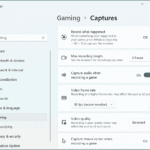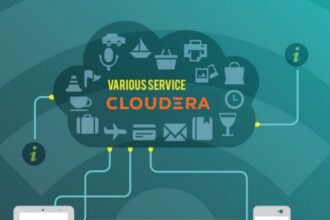
The new-age disruption is influencing every business vertical across the globe. The healthcare industry has seen its fair share of disruption over the past few years, with technologies like blockchain, AI, cloud, and data analytics addressing the diverse associated challenges and offering scalable solutions.
The healthcare system is one of the most complex industries in the world, as patients constantly demand better care management. The increasing number of stakeholders involved in a healthcare system makes it challenging to collect and analyze every piece of raw data generated as new data records are produced every minute.
The massive influx of complex data like EHRs and other digital data makes it necessary to process it into valuable information, which requires advanced analytical techniques. This is where advanced data analytics in healthcare comes into play.
Here are a few statistics about the healthcare industry you must know.
- According to Statista, the global digital health market was worth $175 billion in 2019 and is expected to reach $660 billion by 2025 at a CAGR of almost 25% for the forecast period.
- Another report shares that 72% of healthcare leaders believe that the patient experience would be improved by predictive analysis.
- Global healthcare analytics is expected to reach $80.21 billion by 2026 at a CAGR of 27.5% during the forecast period(2018-2025).
- Another report states that the global healthcare analytics market size is projected to reach $96.90 billion by 2030 at a CAGR of 15.3% from 2021 to 2030.
Data analytics in healthcare encompasses macro and micro trends, whether using the data to gauge the spread of a disease or aiding doctors in detecting an early anomaly in the body.
Healthcare analytics have changed how healthcare systems manage, analyze, and leverage the data collected from various sources like electronic health records, personal health records, e-prescriptions, patient portals, smartphone apps, and master patient indexes. Healthcare app development services providers assist healthcare institutions and organizations with efficient, reliable, and scalable solutions that help in saving ample money and time.
Now let’s understand in detail why data analytics is crucial for the healthcare industry.
Role of data analytics for patients
Data analytics play an important role in the healthcare systems for patients by assisting them at every step of their health journey. Let’s understand the various benefits that healthcare analytics offers to patients.
1. Disease prediction and prevention
Healthcare analytics combines historical and real-time data that allows practitioners to predict diseases at an early stage. The practice management technology offers several powerful analyzing features backed by machine learning algorithms that analyze volumes of historical patient records to identify specific patterns for a serious disease. This helps healthcare professionals take preventive measures and minimize complications.
2. Customer service
Data analytics helps maintain better care coordination as it can send alerts about patients’ health in real-time. Moreover, today’s healthcare industry works on value-added business models that provide better customer services. With data analytics in healthcare, the filtered data allows practitioners to improve the overall customer experience like faster processing time, accurate health services, personalized treatments, etc.
3. Fraud and abuse
The traditional healthcare industry is prone to fraudulent activities like improper payments, invoice issues, insurance claims, etc. Healthcare data analytics allows organizations to track past records for any such activities. Also, the patients will become more aware of third-party frauds and can prevent them easily.
Role of data analytics for practitioners
The benefits of data analytics are not restricted to only patients, as practitioners also leverage the technology to improve their healthcare system. Let’s understand the various benefits of healthcare analytics for health practitioners.
1. Health tracking
Predictive analytics in healthcare can predict health risks before they become chronic illnesses. A filtered health data will help professionals understand the problems better and create a systematic approach to improve patient outcomes with faster and better treatments. This patient health data can lower readmission rates, reduce errors, and identify at-risk problems.
2. Better decision-making
This is one of the major benefits of data analytics in healthcare, as it allows professionals to make data-driven decisions. The diagnosis suitable for the patient can be analyzed with the help of diagnostic analytics. Apart from the patient-centric view, data analytics can help assess healthcare institutions’ strategies and goals for improvement. A few decisions that can be made using data analytics in the healthcare industry are waste reduction, scaling hospital capacity, management, and improving the quality and efficiency of healthcare institutions.
3. Industry advancement
Currently, multiple technologies are used simultaneously to improve the overall healthcare experience of patients. Technologies like AI can suggest the best diagnostics required, and the cloud or blockchain can save the data securely. Overall, big data analytics in healthcare is a step forward in healthcare industry advancements. In the future, data analytics technology will help build efficient health BI solutions.
Wrapping Up!
All industries are likely to leverage data analytics and gain benefits, but no industry will feel the impact same as the ever-evolving healthcare industry. Data analytics and other disruptive digital healthcare trends will unlock the potential of the existing healthcare systems. Data analytics is expected to continue to grow and expand as more types of data become available and new advanced tools are developed.







